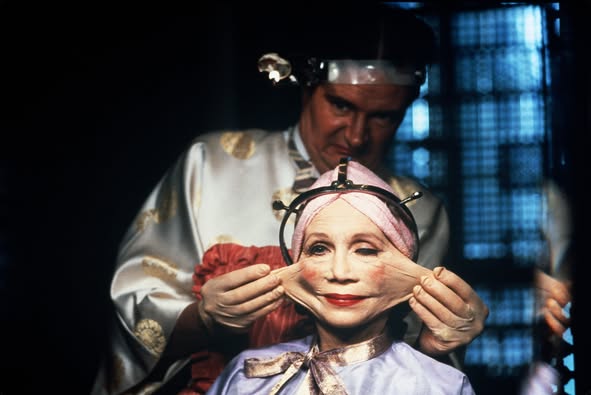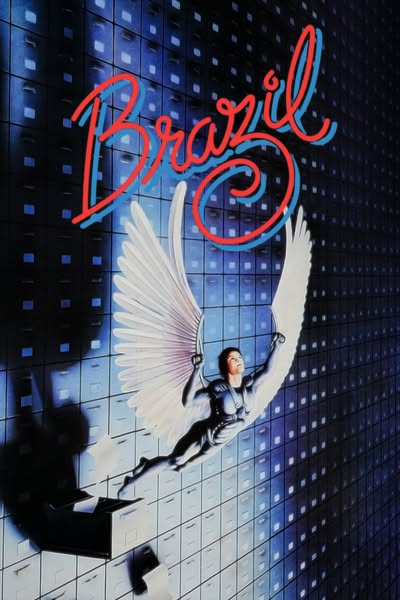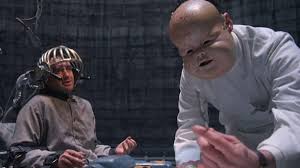Brazil (1985)

“Brazil,” directed by Terry Gilliam and released in 1985, is a darkly comedic dystopian film that presents a surreal vision of a bureaucratic future. The story follows Sam Lowry, played by Jonathan Pryce, a low-level government employee in a nightmarish society plagued by oppressive bureaucracy and absurdity. The film’s title references the haunting melody “Brazil,” which underscores the protagonist’s dreams of escape and freedom.
The narrative begins as Sam becomes embroiled in a case of mistaken identity that leads to a series of increasingly bizarre and chaotic events. He finds himself falling in love with a woman named Jill Layton, portrayed by Kim Greist, who becomes a target of the totalitarian regime. As Sam navigates a world filled with red tape, malfunctioning technology, and surveillance, he grapples with his own desires for individuality and connection in an oppressive system.

Gilliam’s direction is characterized by a distinctive visual style, combining elaborate set designs with a blend of retro-futuristic elements. The film’s production design creates a claustrophobic atmosphere, reflecting the absurdity of the world Sam inhabits. Its striking imagery, alongside a surreal narrative, immerses viewers in a nightmarish landscape that is both unsettling and fascinating.
The screenplay, co-written by Gilliam and Tom Stoppard, is rich with dark humor and sharp social commentary. The film critiques the dehumanizing effects of bureaucracy and the absurdity of modern life, illustrating how individuals can become lost within a rigid system. Sam’s journey becomes a poignant reflection on the struggle for personal agency in a world that values conformity.

Pryce delivers a captivating performance as Sam, embodying his character’s vulnerability and yearning for escape. The supporting cast, including Ian Holm, Robert De Niro, and Katherine Helmond, adds depth to the narrative, each portraying characters that further emphasize the film’s themes of absurdity and control.

Overall, “Brazil” is a visionary work that blends dark comedy with social critique, leaving a lasting impact on viewers. Its exploration of individuality, the absurdity of bureaucracy, and the quest for freedom resonates deeply in a contemporary context. The film stands as a significant landmark in the dystopian genre, showcasing Gilliam’s unique storytelling and artistic vision. Through its imaginative narrative and striking visuals, “Brazil” invites audiences to reflect on the nature of society and the human condition.











